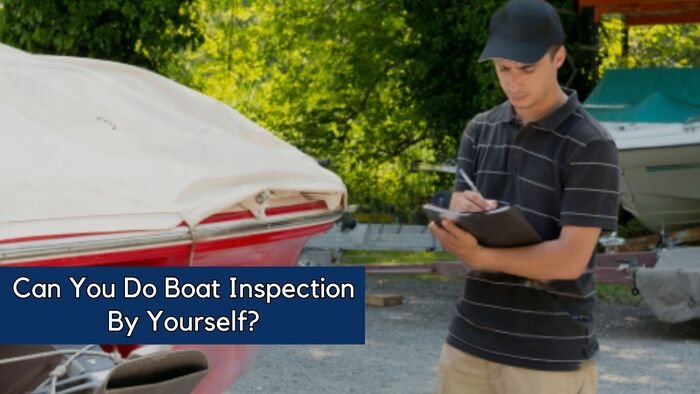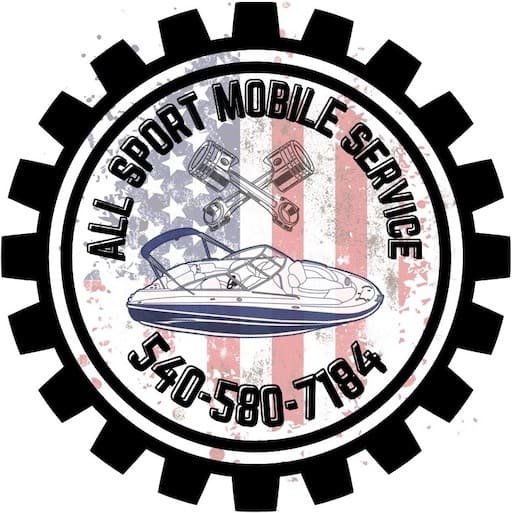Call Now: (540)-580-7184

How To Do a Boat Inspection By Yourself?
We recommend all of our customers to be familiar with conducting periodic general boat inspections. One of the best ways to save money on repairs, keep your boat safe, and always ready for the lake is by conducting a boat inspection yourself.
To help make sure you spend more time on the lake then in our shop at Smith Mountain Lake, we have a boat inspection checklist. Read on, or call us directly to get answers to all of your questions.
What is Boat Inspection?
A boat inspection assesses the interior and exterior of the vessel to ensure safety and performance Boats benefit from regular checks with safety, compliance, performance, maintaining the boat’s resale value and saving on repair costs in the future.
Can I Do a Boat Inspection By Myself?
Yes, you can perform a boat inspection by yourself. There is a general checklist of items you should always inspect. These include Exterior Inspection, Interior Inspection, System Checks, Engine and Mechanical Inspection, Performance Testing.
Self inspections should be conducted periodically throughout the year. However, we recommend to get your boat professionally inspected whenever you suspect something is not performing as it should.
The expertise of a local boat mechanic ensures a comprehensive assessment will be conducted. If you are located in the Smith Mountain Lake region, consider using our boat inspection services.
Boat Inspection Checklist
A thorough boat inspection is crucial for boat buyers and owners. The boat inspection checklist helps identify potential issues and assess the vessel’s condition. Here’s a step-by-step guide tfor general boat inspections:
1. Exterior Inspection:
- Hull: Check for any cracks, blisters, or signs of damage. Pay attention to the condition of the paint and gel coat.
- Deck and Superstructure: Look for wear, corrosion, or damage. Ensure that all fittings and attachments are secure.
- Underwater Gear: Inspect the propellers, rudders, and shafts for damage or excessive wear.
2. Interior Inspection:
- General Condition: Check for cleanliness, signs of water intrusion, and overall maintenance.
- Bilges: Ensure they are dry and clean. Check for any signs of leaks or oil in the bilge water.
- Safety Equipment: Verify that safety gear such as life jackets, fire extinguishers, and flares are in place and in good condition.
3. System Checks:
- Electrical Systems: Test the operation of all electronic equipment, lights, and gauges. Check for loose connections or corroded wires.
- Plumbing Systems: Operate all faucets, the shower, and toilets to ensure proper functioning. Check for leaks.
- Fuel System: Inspect fuel hoses, connections, and tank surfaces for any signs of leakage or wear.
4. Engine and Mechanical Inspection:
- Engine Room: Check for any signs of oil or coolant leaks. Inspect belts and hoses for cracks or brittleness.
- Battery: Ensure the battery is securely mounted and the connections are clean and tight.
- Cooling System: Check the coolant level and look for any leaks.
5. Performance Testing:
- Start the Engine: Listen for any unusual noises and monitor the engine while it’s running for any potential issues.
- Test Run: If possible, take the boat for a short run to check its performance and handling on the water.
6. Examine any Previous Records:
Look over the boat’s maintenance records, previous surveys, and ownership history to understand its upkeep and use. This will help you identify problems in the past and check their current performance and integrity.
7. Report Compilation:
Document all findings, observations, and recommendations in a boat log, complete with descriptions and photographs. This can help you remember previous places on the boat that had minor issues you wanted to watch over time.
8. Maintenance Planning:
Based on the assessment, decide if you can handle the repairs yourself or if you need a boat mechanic to assist you. We have been helping boat owners at Smith Mountain Lake for over 20 years. Contact All-Sport Mobile Service for an estimate based on your boat’s specifics and the inspection type if you are in the area.
Boat Size and Type on Inspection Requirements
The size and type of a boat significantly influence the inspection process, affecting the scope, complexity, and focal areas. Here’s how these factors shape the inspection:
1. Compact Boats (Under 20 Feet):
Inspections for compact boats are generally quicker and less complex. The focus is on assessing structural integrity, system functionality, and safety equipment. In-water inspections are typically conducted as hauling these boats may be impractical.
2. Mid-Sized Boats (20-40 Feet):
These boats necessitate more comprehensive inspections due to their increased system complexity. It is often advisable to perform an out-of-water inspection to thoroughly evaluate the hull, propulsion systems, and other submerged components.
3. Large Vessels and Yachts (Over 40 Feet):
Inspections for large boats and yachts are extensive, covering a broad array of systems, equipment, and structural details. Out-of-water inspections are almost mandatory to properly assess the hull condition, propellers, and other underwater systems.
Types of Boats:
Different types of boats require specific focuses during inspection to ensure their safety, functionality, and performance:
1. Sailboats:
Inspections of sailboats involve a detailed review of rigging, sails, and the keel, along with other sailing-specific components. Key areas include rigging tension, sail condition, and overall sailing performance.
2. Powerboats:
Powerboat inspections primarily target engines, propulsion systems, electrical components, and navigation equipment. Critical scrutiny is given to fuel systems, electrical wiring, and engine functionality.
3. Fishing Boats:
Inspections of fishing boats focus on specialized equipment such as fishing gear, livewells, fish finders, and essential safety features, with particular emphasis on the functionality of fishing-related equipment.
4. Yachts:
Due to their size and complexity, yacht inspections are among the most comprehensive, covering all systems, amenities, navigation equipment, and luxurious features.
5. Personal Watercraft (PWC):
Inspections of PWCs concentrate on engines, propulsion systems, safety lanyards, and controls, with a focus on maneuverability and overall operational functionality.
6. Houseboats:
For houseboats, especially those used as liveaboards, inspections emphasize onboard living amenities, plumbing systems, electrical systems, and regulatory compliance for liveaboard use.
Key Tips for Effective Boat Inspection
A successful boat inspection requires meticulous preparation and active participation. Whether you are a buyer, owner, or seller, the following five essential tips will help you conduct a thorough and effective inspection.
1. Selecting a Qualified Mechanic:
Choose a boat mechanic with experience and specialization relevant to your boat type, ensuring they have a strong reputation for thoroughness and reliability.
2. Engagement During the Inspection:
Try to be present during the inspection, actively asking questions and engaging with the surveyor to gain a deeper understanding of your boat’s condition.
3. Providing Comprehensive Information:
Offer complete and honest details about the boat’s history, usage, and any previous repairs to facilitate an accurate evaluation.
4. Analyzing the Inspection Report:
Meticulously go through the inspection report. Ensure that you understand all findings and discuss any recommended repairs with the surveyor.
5. Maintenance Planning:
Formulate a detailed plan to address any issues identified during the inspection, arrange for necessary repairs, and establish a routine maintenance schedule to keep your boat in optimal condition.
Key Takeaways: How To Do a Proper Boat Inspection?
Conducting a boat inspection by yourself involves thorough preparation and attention to detail. Start with a tailored checklist and conduct detailed visual assessments of the interior and exterior, focusing on structural and system integrity. For comprehensive evaluations, particularly pre-purchase or for insurance, consider consulting a professional surveyor to ensure all potential issues are identified, maintaining your boat’s safety and performance.
For expert assistance, reach out to All-Sport Mobile Service! Our experienced team provides reliable inspections and detailed reports to help you make informed decisions about your vessel’s condition.
